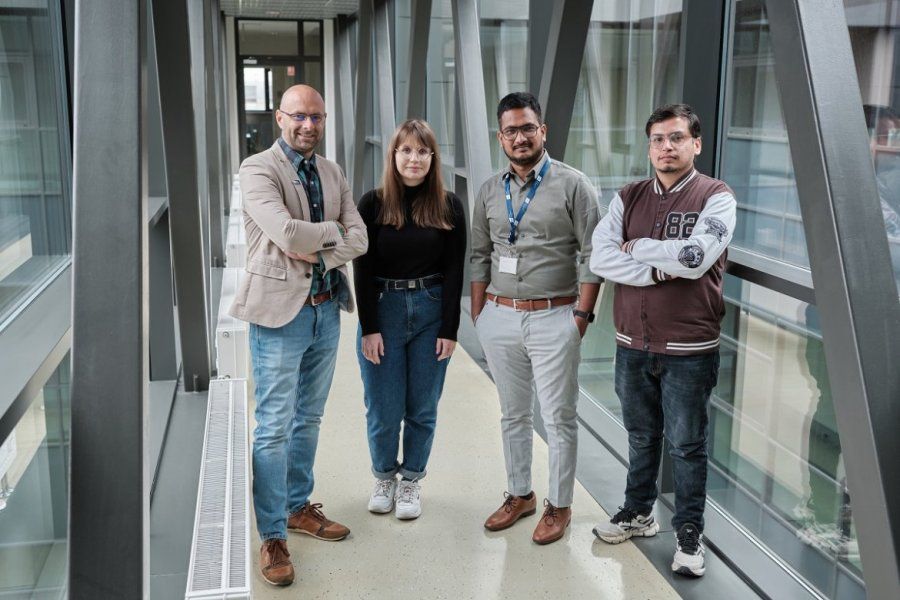A team of scientists at the AMU Centre for Advanced Technology, led by Prof. Artur R. Stefankiewicz, is conducting preliminary research on next-generation coordination frames. These structures may serve as nanotransporters in the future, enabling the targeted delivery and controlled release of medicines to cancer cells. Although the project is only at an early phase, its success could significantly reduce the side effects of therapies and improve patients' quality of life.
“Our project combines supramolecular chemistry with enzyme-activated methods of drug delivery,” says Dr Venkateswarulu Mangili, the project's coordinator. - "Unlike traditional approaches, often based on passive targeting of therapies or involving systemic toxicity, our envisaged solution will utilise specifically designed nanocapsules that, surrounding anticancer drugs, will respond to enzymes present in the tumour microenvironment. The engineered capsules will remain stable under healthy, standard conditions, but will disintegrate when exposed to targeted enzymes around the tumour, allowing the medication to be released precisely where it is needed. This approach will reduce toxicity while increasing treatment efficacy," the researcher explains.
To simplify, the coordination frames in question are small, hollow structures made of metallic ions and organic molecules. Their intended function is to act as molecular containers transporting and protecting medicines. As part of a project carried out by AMU Centre for Advanced Technology chemists, scientists plan to design capsules that remain closed while circulating in the body and then open in response to specific enzymes present in the tumour microenvironment, allowing the medicine to be unleashed at the optimal site.
The research is being conducted as part of the project “Enzyme Responsive Nanoscale Supramolecular Capsules with Application in Anticancer Drug Delivery," funded by the POLONEZ BIS 2 competition of the National Science Centre, Poland and the Horizon 2020 Framework Programme (Marie Skłodowska-Curie grant).
Read more in Polish at Uniwersyteckie.pl
photo by Władysław Gardasz


